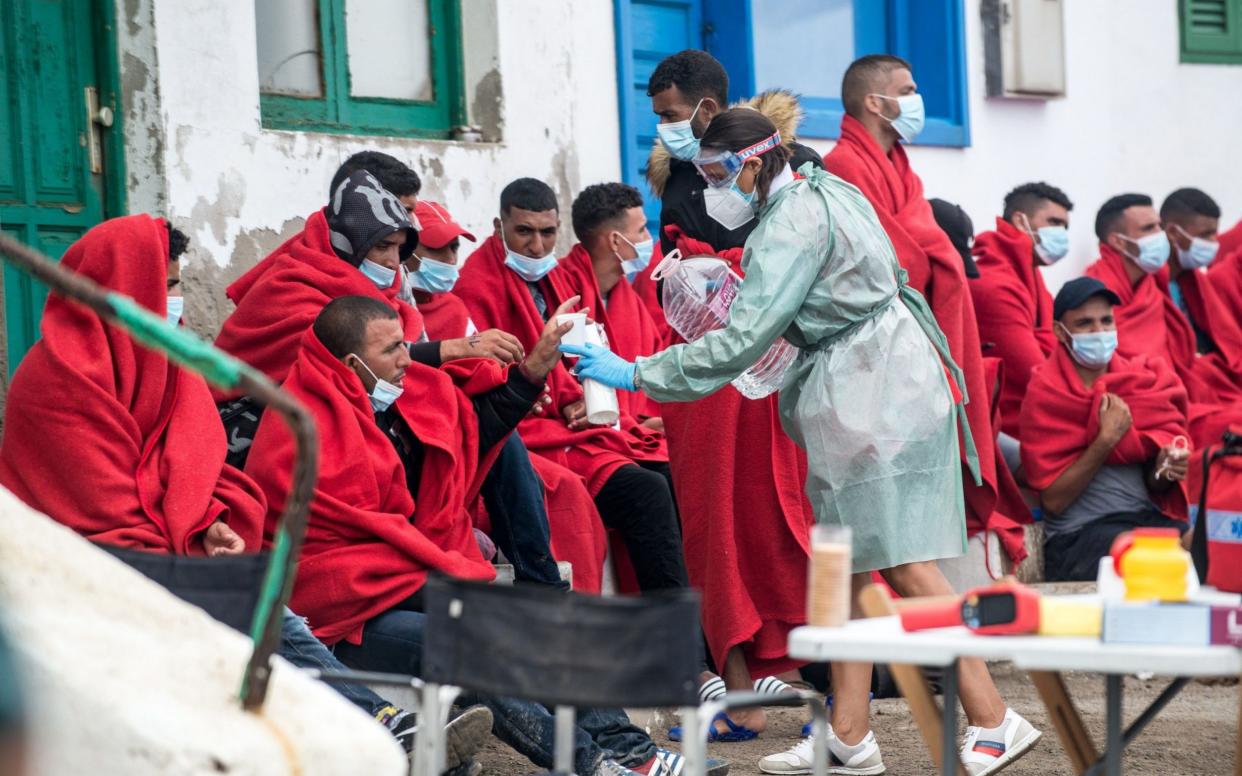Spanish Canary Islands overwhelmed by migrant arrivals after Covid forces Morocco to seal border

Tighter control of its coastline and borders by Morocco during the Covid-19 crisis has led to the largest migrant arrival numbers in the Canary Islands for more than a decade, with local politicians warning the Spanish government that they cannot cope with the influx.
In around 48 hours between Thursday night and Saturday more than 1,000 migrants used small boats to reach the archipelago, a dangerous crossing of Atlantic waters where the minimum distance from the island closest to the African continent, Fuerteventura, is around 60 miles.
The Red Cross said that all of the 1,015 migrants who reached the islands on 37 boats would survive, although some were showing signs of hypothermia and exhaustion. The migrants have also been tested for coronavirus.
Earlier this year Spain and Morocco agreed to boost cooperation on the detection of migrants attempting to cross the Strait of Gibraltar.
Watch: 7,000 migrants arrive in UK in 2020 aboard hundreds of boats
Spain was seen as an easy option for migrants trying to get from North Africa to Europe, with many choosing to cross the 13km-wide Strait as their entry point.
However, Morocco has maintained a strict closure of its land borders during the Covid-19 pandemic, forcing migrants from sub-Saharan Africa to seek other entry points including the Canary Islands.
According to Spain’s interior ministry, 5,121 migrants had reached the Canary Islands by sea until mid-September this year, compared to 836 for the same period in 2019, bringing back memories of more than a decade ago, with the peak of more than 30,000 arrivals in 2006.
On a visit to the islands over the past three days, Spain's Migration Minister José Luis Escrivá promised a "comprehensive response", but he was criticised for bringing no concrete proposals to offer local authorities who say they have run out of facilities to house the migrants in safe conditions.

“If [the minister] is overwhelmed by the situation and doesn’t wish to cooperate, he should step aside and let other people do the job,” said Blas Acosta, the leader of Fuerteventura’s island council, after a stormy meeting which Mr Escrivá reportedly ended abruptly after receiving a barrage of criticism from local officials.
The mayor of Las Palmas in the island of Gran Canaria, Augusto Hidalgo, was met with an angry protest as he showed Mr Escrivá a former primary school he has decided to use as a temporary shelter, with a contingent of local residents shouting their displeasure at the decision to house migrants in their neighbourhood.
Around 2,700 migrants are currently being accommodated in hotels, with the Canary Islands suffering a disastrous year for tourism due to Covid quarantine conditions placed on travellers to Spain by most countries.
Many of the migrants currently aiming for the Canary Islands are thought to be starting their journey a thousand miles south in Senegal. According to the AFP news agency, the Senegalese military last week reported having intercepted two boats carrying 186 people.
Immigration across the Strait of Gibraltar from the coast of Morocco is down by almost 50 per cent this year, which experts say has caused the migratory pressure to build up down Africa’s west coast.


